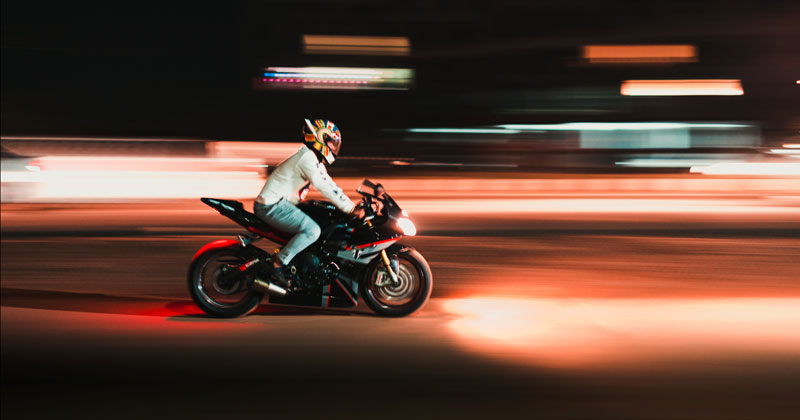There are many benefits to riding a motorcycle! From being able to feel the wind on your face as you cruise down the road, to enjoying your surroundings as you ride. Riding a motorcycle makes for an amazing hobby and a great alternative to riding in a car.
Riding a motorcycle can also significantly enhance your reflexes because your entire body is required to balance the bike. The more experience you gain as a motorcyclist, the sharper your reflexes become, the more alert you become, etc. Riding a motorcycle can be an exhilarating and amazing experience, provided nothing goes wrong.
While motorcyclists only account for 5% of the total drivers on a road, there has been significant research conducted that has revealed the fatality rate of motorcycle accidents as 72 per 100,000. This is different from the 13 out of 100,000 for cars on the road – a sobering statistic. Therefore, experiencing a motorcycle collision is often a very challenging situation.
6 Things to Do After a Motorcycle Accident
If you ever find yourself in the unfortunate event of a motorcycle accident, it is extremely important to keep certain things in mind. While you may not remember them immediately given the shock of the event, registering this information can help you mitigate and prevent future problems.
1. Immediately Move to Safety
In the event of a crash, the first instinct of many motorcyclists is to check their bike and try to move it. However, this is one of the most dangerous things you can do. Remaining at the location of the crash makes you susceptible to additional head-on collisions.
The first thing that you need to do is move away from the scene of the crash, even if it means leaving your bike behind. In addition to any injuries that you sustain, motorcyclesafetylawyers.com points out that you will also experience an adrenaline rush, which masks any serious injuries you may have.
Moving your motorcycle after an accident will also compromise the evidence that can be collected by law enforcement, i.e. determining how a crash may have occurred.
2. Collect Relevant Information
If you are not the only person involved in the crash, make sure that everyone is moved from the scene of the crash to a safer location. Once this is done, get the information of all drivers involved in the accident, including names, phone numbers, addresses, and insurance information.
It is very important to take pictures of the vehicles, crash scene, vehicles involved, and people driving!
A firsthand account of on-scene evidence can really come in handy down the road when filing a lawsuit or an insurance claim. It will also be a huge help to any personal injury lawyer you hire.
3. Keep Your Gear On
After a motorcycle accident, the adrenaline coursing through your body will prevent you from realizing the extent of your injuries. Even something like boots and gloves, if removed, can cause issues to injuries that have already been sustained. The best thing to do is keep your gear on and limit your movements as much as possible. Go to an area where you can be safe and remain in a neutral position until the paramedics arrive on scene.
4. Call the Police
If you are safe and conscious, call 911, and make sure a police report is filed! Do not let the other driver drive away without filing a police report! Take down the name and badge numbers of the officers on the scene. This might help you get a copy of the report later on.
5. Assess the Situation Mentally
It is very likely that after a motorcycle accident, you might go into physical and/or emotional shock. The symptoms associated with physical shock include dizziness, fainting, vomiting, changes in breathing rate, and pale skin.
The symptoms of emotional shock include emotional distress, confusion, agitation, trembling, and experiencing an adrenaline rush.
If you have sustained injuries, request immediate medical attention. Remember to remain calm and wait until you are assisted. Do not do anything without medical personnel directing you.
6. Speak to and Hire a Personal Injury Lawyer
Hire a personal injury lawyer that has experience with motorcycle accidents! It can make a huge difference in the insurance claim process. Most insurance companies will low ball you without a lawyer, but having an experienced personal injury lawyer can help significantly during the negotiation process.
Before you decide to accept a settlement, have a conversation with an experienced personal injury lawyer, who will communicate with the insurance company for you, and ensure you receive the compensation you deserve.
Share all of the evidence and information collected with your lawyer so they are aware of all aspects of the accident.
Remember to keep calm and know that you will be okay, regardless of what the circumstances may seem like at the time. Read through these tips a couple of times before your next ride so that they are ingrained in your memory and come in handy when you need them most! Ride safe!

